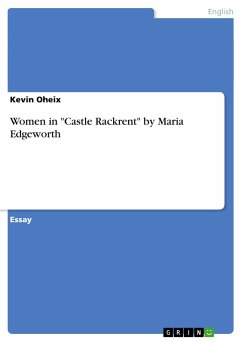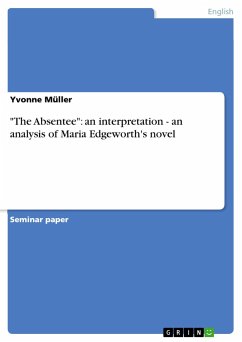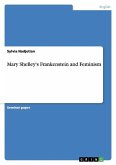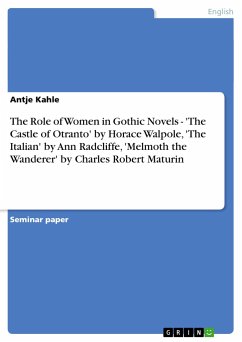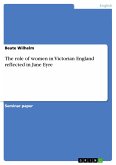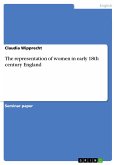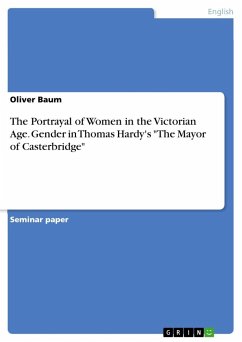Essay from the year 2013 in the subject English Language and Literature Studies - Literature, grade: 17, University of Rennes 2, language: English, abstract: Maria Edgeworth's Caste Rackrent was published in 1800 at the moment of political union between Ireland and Great Britain. This short novel was the first of her Irish tales. Set before 1782, a momentous period for the independence of the Dublin parliament, Thady Quirk, a servant in a big house tells us of four generations of the Rackrent family. As the Irish Catholic narrator, he recounts the decline of this Protestant landowning family who stems from Maria Edgeworth's own background. Thady's stories describe how the Irish middle class rose because of mismanagement by the Protestant elite. The novel represents a key moment in the enlargement of the autonomy of women's authorship. Narrated from a colonial point of view, Castle Rackrent indicates Edgeworth's hybridity in regard to her "Anglo-Irishness" and heralds the beginnings of a reflection on Irish nationhood and the salient function of women in the story. My analysis will revolve around the ways in which women in Castle Rackrent demonstrate ambivalence in terms of their presence as victims and as characters whose socio-political weight indicates their evolution. Emphasis will be laid on how women are regarded as victims of a patriarchal system in which, at the same time, they use as a model to acquire economic independence while the landlords fall from grace and lose their prestige.
Hinweis: Dieser Artikel kann nur an eine deutsche Lieferadresse ausgeliefert werden.
Hinweis: Dieser Artikel kann nur an eine deutsche Lieferadresse ausgeliefert werden.

